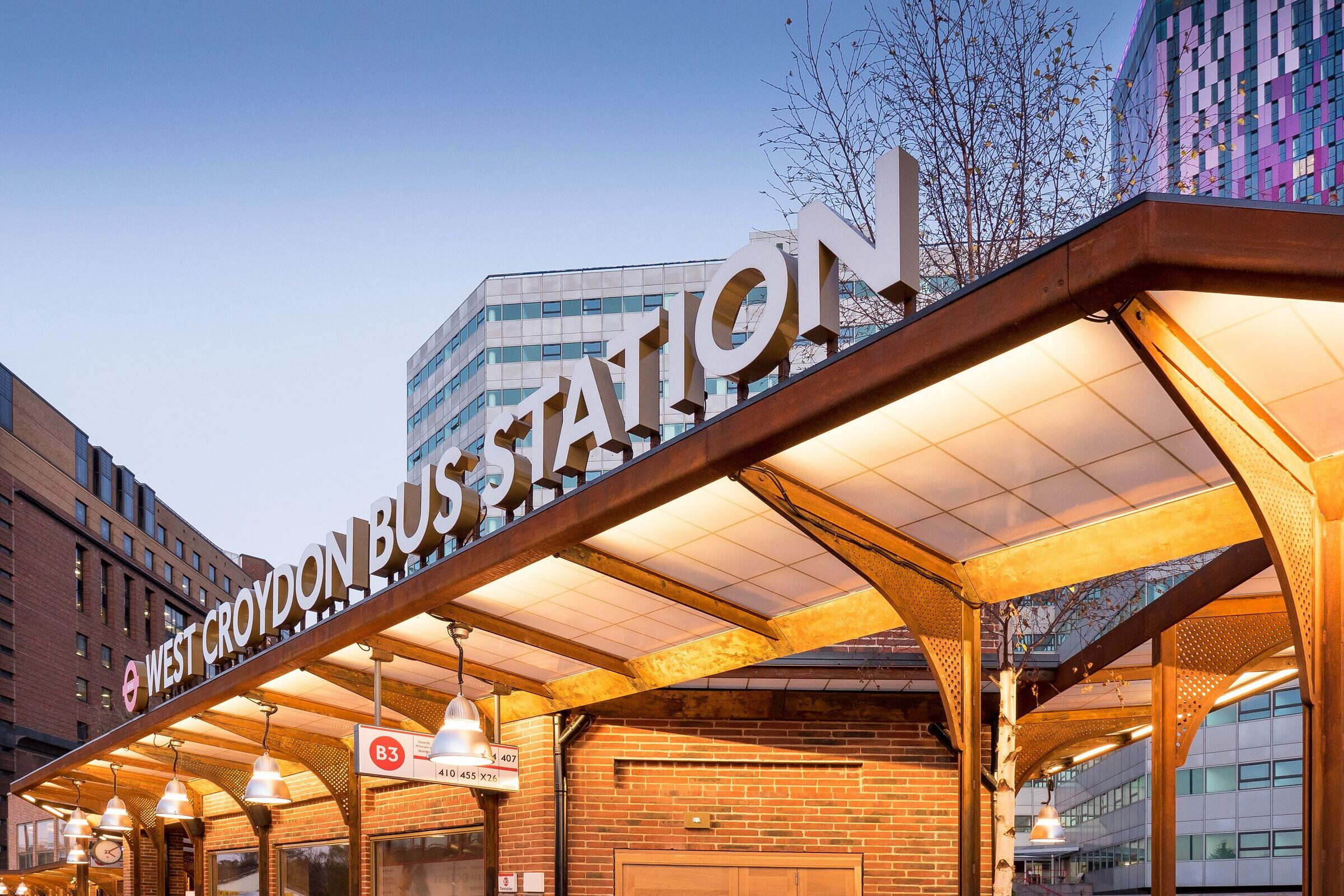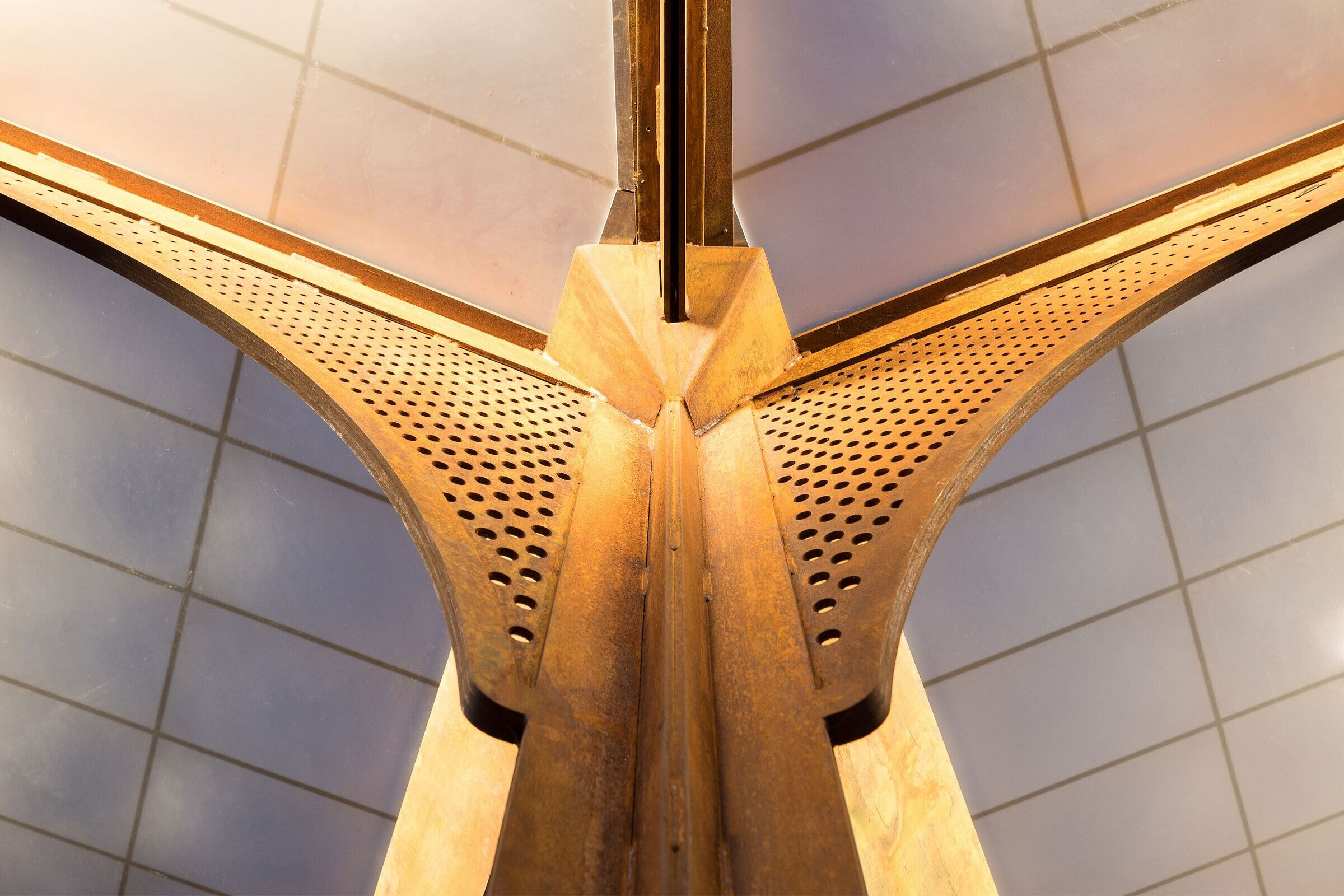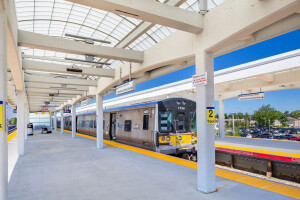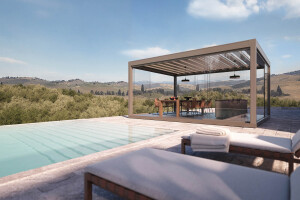The desire to create a bus station that would not only accommodate millions of commuters to London each year, but also stand out prominently in a revitalized town center was the inspiration behind the award-winning West Croydon Bus Station.
The redevelopment of the bus station was part of a £50 million ($75M USD) program to transform the town center by creating a more attractive environment to live, work, socialize and do business.
Designed by Transport for London’s (TfL) in-house team of architects and headed by Martin Eriksson, the project goal was to create a user-friendly waiting and assembly shelter to cope with a 20 percent increase in passenger numbers and provide a brighter, more spacious environment to service the thousands of passengers using this important interchange daily.

The project was honored with the prestigious RIBA London Award 2017 and Eriksson was named the RIBA Project Architect of the Year. In jury comments, the West Croydon Bus Station “makes a brilliant case for the value of beautiful design and aesthetics on even small-scale transport infrastructure, and for projects that are fully achievable under budget with the right leadership and vision.”
The normal choice of construction for a translucent and weatherproof canopy would be to glaze the roof with glass. The project team at TfL realized that Kalwall® offered a better solution, which would meet the design requirements and provide many other benefits over traditional glazing.
Kalwall is much lighter than glass. This means it needs less support, resulting in a better view of the environment; including the very attractive, listed St Michael’s Church, which had previously been blocked from the view. The steel substrate could also be worked into arches and patterns that mirror and complement the church.

Furthermore, Kalwall is visually far more attractive than glass while eliminating shadows, hotspots, glare and the stark contrasts of light and shade; all improving the experience for passengers below. Kalwall’s soft glow also minimizes light trespass at night.
For low maintenance, Kalwall is also a great choice. Soil and detritus are less obvious on Kalwall than on glass, and cleaning is much simpler because access scaffolding is not required and maintenance staff can safely walk across its surface.
Martin Eriksson, RIBA London Project Architect of the Year, comments:
“Transport for London has a long and rich design heritage. The redevelopment of West Croydon bus station has sought to build on this heritage and recognises that waiting for your bus should not just be a perfunctory experience, instead it should be a positive one enhanced by good architecture. Site constraints, high footfall and the poor design of the previous station, presented an excellent opportunity to demonstrate the difference good architecture can make through improved layout, better passenger movement and accessibility. The style and natural flow of the station compliment its surroundings and provide an interesting play of light, shadow and texture.
Using Kalwall brought many advantages and benefits in relation to its lightweight yet strong structural qualities. It has helped enhance daylight transfer and protects from sun glare whilst reducing hotspots and solar gain. The material’s soft translucent qualities contrast beautifully with the building’s warmth and texture, providing a sheltered waiting environment with the added advantage of low-maintenance and high performance.”
Awards:
RIBA London Award 2017
RIBA London Project Architect of the Year Award 2017
RICS 2017 Highly Commended Certificate - Infrastructure





















